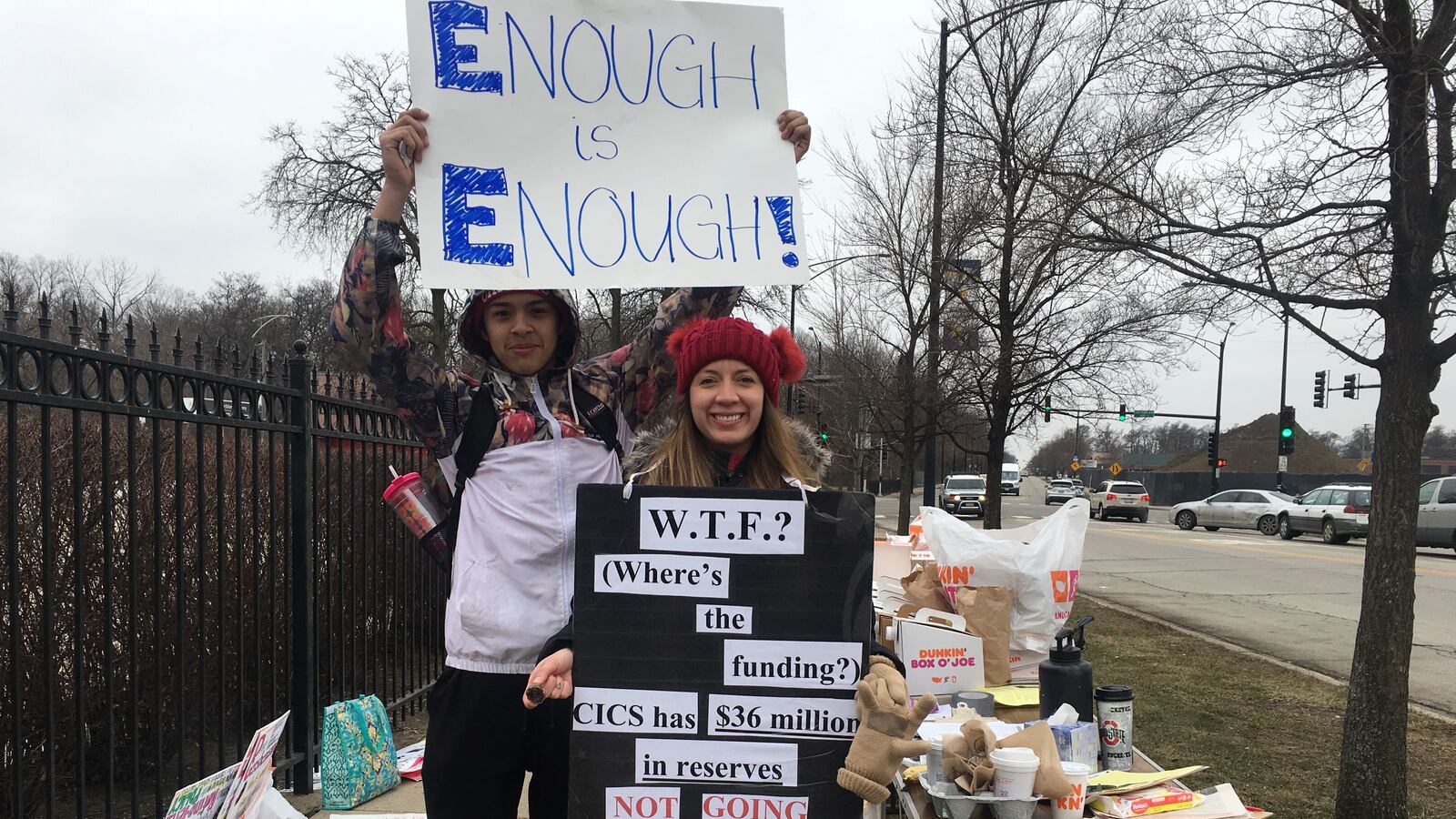A second Chicago charter strike has entered another day, with pay remaining a sticking point between the teachers’ union and charter administrators.
An official for Civitas Education Partners, which oversees the four Chicago International schools on strike, said that the union on Tuesday rejected a 30 percent increase over four years that would bring teachers to 102 percent of the salary ranges at Chicago’s district-run schools.
Related: Empty schools and Bird Box memes: Scenes from the first day of the CICS charter strike
The union described the pay negotiations differently, arguing that the raises didn’t apply to all teachers and that support services, such as counselors and social workers, would have been cut as a result. The offer, they added, was much lower for paraprofessionals, which was a point of contention in the city’s first charter strike last December.
The average pay for a teacher at a district-run school in 2018 was $73,661, according to state report card data, but educators at many charters make considerably less.
The union, meanwhile, used the second day to criticize the management organization’s corporate headcount. “CICS has increased the number of non-educational corporate positions in recent years, with the number of six-figure executives rising from four in 2017 to 14 today,” said union spokeswoman Christine Geovanis.
Even among charters, Chicago International has an unusual organization chart. The umbrella organization oversees six smaller management groups that, in turn, manage a total of 14 schools.
On strike are 125 educators at three schools managed by Civitas Education Partners — Northtown Academy, Ralph Ellison and Wrightwood — and one school, Chicago Quest, which is managed by Civitas and a subpartner. Together, the four schools serve 2,200 students.
The striking teachers are represented by a union that, last fall, was absorbed by the Chicago Teachers Union. Since welcoming charter educators into its bargaining unit, the union has had to walk the line between representing charter teachers but speaking out publicly against charter expansion.
Experts estimate that 10 percent of charter schools nationwide are unionized. The American Federation of Teachers represents 7,500 charter school employees at 236 schools in 15 states. Chicago has the highest proportion of charters with union contracts, at 25 percent, but Los Angeles, where district and charter teachers went on strike in January, has more union teachers at charters.
CICS schools are open during the strike and staffed by non-union personnel. On Tuesday at one campus, only one student showed up.
This is the second Chicago charter strike since December, when teachers at 15 Acero schools walked off the job for four days.

